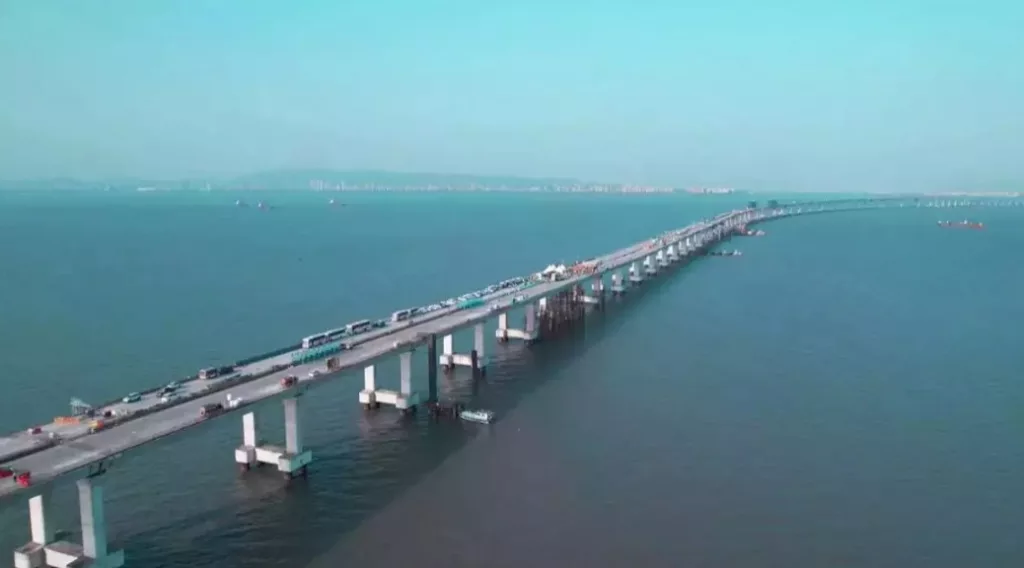Mumbai: Trans Harbour Link set to open on December 25

New Year Gift : Mumbai Trans Harbour Link To Now Open In January 2024
By: Pune Pulse
November 15, 2023
Pune: On December 25, the Mumbai to Navi Mumbai Trans Harbor Link Road is expected to open to vehicular traffic. The Mumbai Trans Harbor Link Road (MTHL) will cut the hours it currently takes to travel from Mumbai to Navi Mumbai to just 20 minutes.
With multiple technologies integrated, this bridge is the longest maritime bridge in the nation, spanning roughly 22 kilometers.
As per further information, with the implementation of the Open Road Tolling (ORT) system on the bridge, commuters won’t have to slow down their cars at toll booths. When travelling through the toll booth at a speed of 100 km/h, tolls can be paid. When finished, the bridge will have six lanes and be able to handle 70,000 vehicles per day.
The project, which spans 21.8 km and is 16 km above sea level, will cost Rs 18,000 crore. The sea link’s alignment starts in south Mumbai at Sewri and ends in the Raigad district at Chirle.
In addition, 78 of the 130 CCTV poles have been installed, and the operation and control center’s construction are proceeding according to plan. Of the toll infrastructure projects, the Mumbai Metropolitan Region Development Authority (MMRDA) has completed half of the work.
Mumbai Trans Harbour Link (MTHL) is a 22-kilometer sea bridge that connects the city to the mainland. It is 16.5 kilometers long over the sea and 5.5 kilometers long on land. When completed, it will be India’s longest sea bridge, able to accommodate 70,000 cars per day. During the busiest phase of construction, about 14,000 people worked on this project, which required skilled labour at every stage.
A team from Larsen & Toubro (L&T) and Japan’s IHI Infrastructure Systems completed the land work and construction on the Sewri side, while Daewoo-Tata oversaw the Navi Mumbai side.
The first steps were taken in April 2018. From Rs 4,500 crore in 2005 to Rs 17,843 crore in 2018, the project’s cost grew, with a loan from the Japan International Cooperation Agency (JICA) providing about 85% of the funding.









